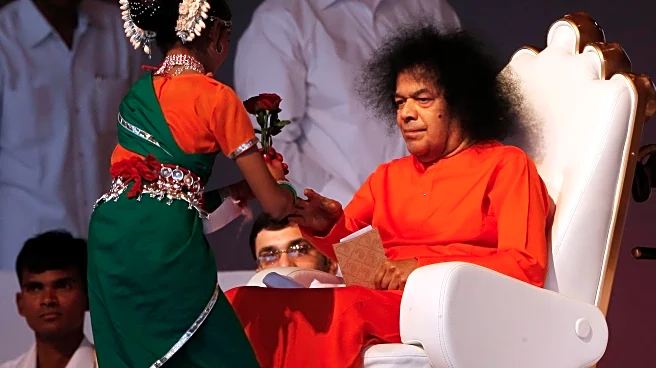What's Happening?
Brandon M. Terry, a professor of social sciences at Harvard, has released a new book titled 'Shattered Dreams, Infinite Hope,' which critiques the traditional narratives of the civil rights movement. Terry argues that the romantic and ironic modes of storytelling
have distorted collective memory, offering a 'tragic vision' as a more accurate representation. He critiques figures like John Rawls and Taylor Branch for their portrayal of the movement as a national redemption story, suggesting that this oversimplifies the complex realities faced by African Americans. Terry's work aims to provide a more nuanced understanding of the civil rights era, emphasizing the importance of remembering the movement's struggles and achievements without resorting to simplistic narratives.
Why It's Important?
Terry's book is significant as it challenges the dominant narratives that have shaped public understanding of the civil rights movement. By offering a tragic vision, he encourages readers to engage with the movement's complexities and avoid romanticized or overly pessimistic interpretations. This approach has implications for how history is taught and understood, potentially influencing educational curricula and public discourse. It also highlights the ongoing struggle for racial equality, reminding society of the unfinished work in achieving true justice and equality. Terry's critique may inspire historians and educators to reevaluate how they present the civil rights era, fostering a more critical and reflective engagement with history.
What's Next?
The release of Terry's book may spark discussions among historians, educators, and civil rights activists about the narratives used to describe the movement. It could lead to revisions in educational materials and public commemorations, ensuring a more accurate representation of the era's complexities. Terry's work may also influence contemporary civil rights advocacy, encouraging activists to draw lessons from the past while acknowledging the movement's limitations and ongoing challenges. As debates about race and equality continue, Terry's book provides a framework for understanding the historical context of these issues, potentially shaping future policy and activism.
Beyond the Headlines
Terry's critique of civil rights narratives raises broader questions about the role of storytelling in shaping collective memory and identity. It challenges the notion of history as a linear progression towards justice, emphasizing the need to recognize the movement's setbacks and ongoing struggles. This perspective encourages a more critical engagement with history, prompting society to confront uncomfortable truths and resist simplistic narratives. Terry's work also highlights the importance of diverse voices in historical discourse, advocating for a more inclusive and representative understanding of the civil rights era.















